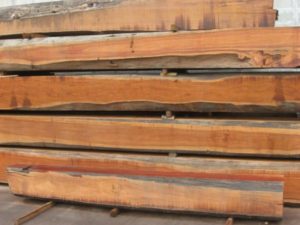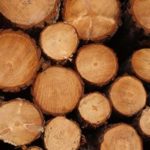Last week we talked about regulating the tropical forests and international organizations like CITES. These factors are important to consider as the lumber is harvested, processed, and exported to the US. Once that lumber hits our shores, a different kind of regulation, called The Lacey Act, kicks in that is unique to the US. This regulation holds everyone in the supply chain accountable for legal logging practices; from the lumberjack to the carpenter.
What Is The Lacey Act?

The Lacey Act, made into law in 1900, was enacted to prohibit the sale, trade, or transport of plants and animals that were procured illegally. While the law is more than 100 years old, the lumber trade was only very recently added under its purview in 2008. At its core, the Lacey Act says that, if any lumber is logged in violation of local law, it cannot be transported, bought, or sold in the US. If this sounds rather vague, then that is because it is. The legislation is designed to provoke all those in the supply chain to investigate the practices of their suppliers and even their suppliers’ suppliers. It is everyone’s responsibility to make sure that we know where our lumber came from.
While documentation and certifications do exist, the Lacey Act relies upon fact. This means that even though your lumber importer may provide you with documentation of the lumber’s source, it is your obligation as the buyer to exercise due diligence and confirm the validity of the supplier’s claim. For that matter, it is your supplier’s responsibility to perform their own due diligence to validate the lumber source from their supplier. It is about finding and verifying a trustworthy logger, exporter, importer, distributor, and dealer. Documentation can be faked and it is only as good as the word of the person that gave it to you. This is not meant to be a paranoid statement, but, rather, a call for investigation. The reality is that your lumber dealer may have done their due diligence but was not able to trace the lumber all the way back to the source. It is possible some shenanigans occurred up the supply chain. What Lacey encourages you to do is to ask questions and build a long term relationship with a supplier. Really, it encourages awareness. Yes, there is a veiled (and sometimes not so veiled) threat behind all this, but the point is not to discourage lumber trade. The point is to require that those in the supply chain take ownership of the responsibility for legally obtained lumber.
How We Ensure Our Lumber is Legal
The J. Gibson McIlvain Company imports a great deal of lumber. In fact, more than half of our business these days is wrapped up in exotic hardwoods imported from all over the world. In terms of environmental sustainability, we are very interested to know where our imported lumber comes from and how it was harvested. The Lacey Act also mandates that we must be concerned about these factors. We perform our due diligence by only working with suppliers we know and trust. This trust is borne out of generations of doing business together. Agents on the ground in South America, Asia, and Africa, on site visits, and constant communication with our sawmills are all important parts of how we track our lumber from the forest to our lumber yard. Our 200+ year company history has helped us develop incredible relationships and a reputation for integrity and quality in foreign markets. In truth, we walk away from much more lumber than we buy because we just can’t be sure of the validity of the source. As one of our customers, you can not only be sure of the legal nature of our lumber, but we welcome your own due diligence and can help you trace the lumber’s journey up the supply chain.
Whether you buy lumber from J. Gibson McIlvain or another importer, you need to be aware of the legal obligation to know where it comes from. This applies to all species, not just the CITES regulated ones. Ask questions. Be aware of the trade and transport documentation. Be wary of lumber that is dramatically cheaper than the market. Look closely at cash only transactions. Suppliers that are unwilling to answer questions need to be avoided. Inconsistent product labeling and questionable species identification is always a red flag. All of these factors should make you think twice. The fact is that, at some point in the supply chain, the Lacey Act can do nothing because the offender may be a foreign entity. If you are close to the US end of the offense, you may be the target of prosecution, so it is especially important to remain inquisitive and alert for any questionable deals.
We are all liable and, therefore, are all on the same side, trying to protect this valuable resource.
Is illegal logging possible with all these checks and balances? Absolutely, but identifying it and avoiding it is just as possible.
Rest assured the J. Gibson McIlvain Company is here to help you find the best quality lumber that is legally obtained and environmentally responsible.
Have Questions About the Lumber Supply Chain and Environmental Sustainability?
We welcome your comments below, and we will be happy to assist.









Leave a Reply